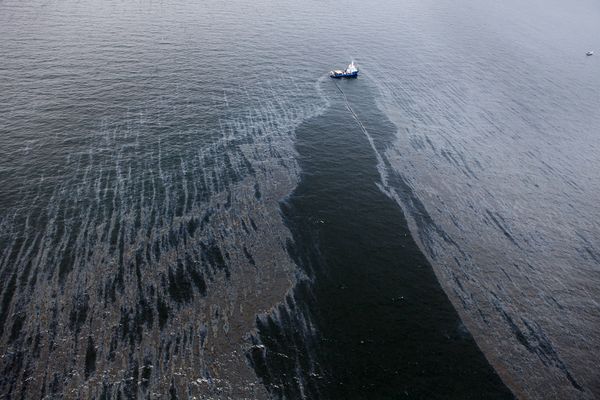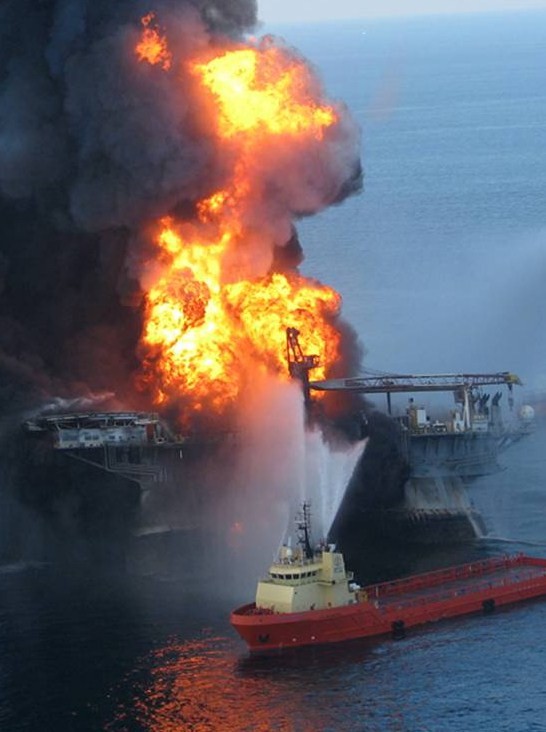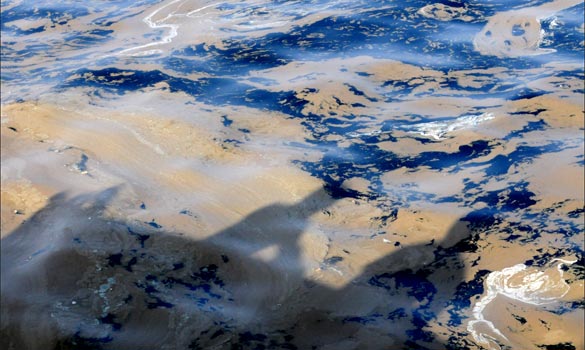Oil Spills into the Gulf of Mexico
As of Monday, it is unknown whether the oil spill in the Gulf of Mexico will be contained within days or continue to spread to coastal states in coming months.
On March 20, the Deepwater Horizon oilrig experienced an explosion that is still being investigated; the cause of the explosion remains unknown. Over 100 rig workers were rescued, but 11 went missing and are now presumed dead as search efforts have been called off.
As of Friday, it didn’t seem that the rig’s sinking and ultimate demise would cause the major problems it has. Since then, around 1,000 barrels worth of oil has been released into the ocean. This comes to about 42,000 gallons of oil being released every day.
BP, the company leasing the Deepwater Horizon, has devised multiple plans to stop the oil leaks occurring approximately 5,000 feet under water. Advanced vessels are determining whether or not engaging the “blowout preventer” is feasible at this point. If so, it could stop the leak completely within 36 hours.
That solution comes with serious risk and could possible cause a catastrophic turn of events. If this spill continues as is, or is somehow increased, it will be compared to the Exxon Valdez disaster in which 11 million gallons of oil was spilled in 1989. According to a New York Times article, it would take the Deepwater Horizon 262 days to match that number if it continued on its current pace.
If the blowout preventer solution does not work out, the next plan could take up to three months to fully work. This would involve drilling relief wells near the leak. If this is the plan of action, a dome will be used to guide oil up to the surface in a controlled manner so it can be gathered appropriately.
Task forces are working day and night to remove oil from the surface, but weather halted them over the weekend. Work has resumed, but they are a long way from putting an end to this problem. By Sunday, around 48,000 gallons of an oil and water mixture were removed from the ocean.
The mass of oil is moving towards the coast, but authorities say it will not reach the U.S. coastline within three days. These reports avoid describing what will happen if those three days run out and the situation does not improve.
Aside from beaches, fishing grounds and tourist spots being damaged, wildlife including sperm whales, dolphins, and sea birds will be harmed and killed.
Florida and Louisiana are the two coastal states in the most imminent danger of coming in contact with the oil as it moves north and west with the winds. If all goes well, this situation will be under control within a matter of weeks. If not, the damage could be record-breaking.
Unfortunately for President Obama, this disaster could not have come at a worse time as he begins a push to offer up leases for off-shore drilling off U.S. coastlines. This recent tragedy at the Deepwater Horizon rig will only give Obama’s opponents more ammunition to use during debates.




Leave a Reply